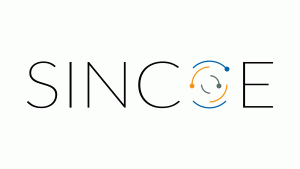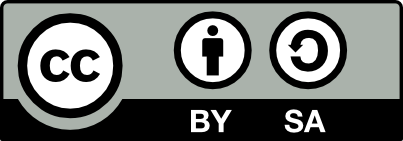Home » ResourceType » Case examples
Category Archives: Case examples
Student’s perspective on the use of cameras in online teaching. Extended description
Thoughts of Turku University of Applied Sciences students on the use of cameras in online lessons As part of the SINCOE project (Supporting Innovation Competence in online education), which is part of the Practice-Based Pedagogy Research Group, a short survey was conducted in November 2024 for 1st and 2nd year students and open UAS multi-modal […]
Student’s perspective on the use of cameras in online teaching
Keywords: online teaching, use of camera, student’s perspective, engagement, interaction What and Why To get information about the reasons why the students do open or do not open the camera during online lessons. To use this information when planning courses and online lessons. How Survey. Article. Outcome As a result from the pilot, an article […]
Self-assessment of group work piloting the Cogknit tool. Extended description
Objectives: The objectives of this pilot were to explore the use of the Cogknit platform in the Strategic Sourcing course, which is an optional course for 2nd and 3rd-year Industrial Management and Engineering students. The participant group was diverse, consisting of exchange students, double degree students, and international degree students. Building on previous pilots, this […]
Self-assessment of group work piloting the Cogknit tool
Keywords: Assessment, innovation competence (critical thinking, creativity, initiative, teamwork, networking), project-based learning, online learning, motivation, feedback, complementary evaluation What and Why: The pilot was carried out in the Strategic Sourcing course, an optional course designed for 2nd and 3rd-year Industrial Management and Engineering students. The participant group was diverse, comprising TUAS students, exchange students, double […]
Role of online tools for communication in agile projects. Extended description
Objectives: The objective was to clarify how agile project working online and onsite affect students’ innovation skills especially in the area of teamwork. The students learn basics of project management with agile method (Scrum) by working in 3-6 students project teams. During the projects each team build web sites for fictive companies and used various […]
Role of online tools for communication in agile projects
Keywords: MS Teams, Scrum, project work, communication, teamwork, assessment tool Communication is essential for projects to succeed. Communication takes place both onsite and online. Online tools such as Microsoft (MS) Teams can be used for communication. Especially, when projects use agile project methods such as Scrum regular communication is important within the project and with […]
Development of Innovation and Entrepreneurial Management Competencies in First Year Physics Engineering Students at UPV. Extended description
The pilot was carried out in the first course of Physical Engineering at the School of Telecommunication Engineers of the Polytechnic University of Valencia. The subject is called Fundamentals of Business Organization. It is a group of 75 students who are in the first year of the degree. The experience began on February 14 and […]
Development of Innovation and Entrepreneurial Management Competencies in First Year Physics Engineering Students at UPV.
Keywords: Engineering Education, Business Management, Innovation Assessment, Smart City Entrepreneurship What and Why A pilot course on Business Organization fundamentals was conducted for 75 first-year Physical Engineering students at the Polytechnic University of Valencia. The purpose was to help technically oriented students understand business management’s relevance to their future careers, particularly focusing on entrepreneurship and […]
Improving the validity of self-assessment through preparatory self-assessment training. Extended description
Objectives:Students get acquainted with the concept of innovation competence. Students train a more objective self-perception. They become aware that biases play a role in self-assessments and learn how to avoid or at least reduce them. Methods: Introduction of the Sincoe-Concept of innovation competence Sincoe@Assessment Tool in a face-to-face lecture or in a online synchronous TEAMS-lecture. Minigroups: […]
Improving the validity of self-assessment through preparatory self-assessment training.
Keywords: Self-Assessment, Training, Biases Before using the Sincoe@Assessment tool, students complete a self-assessment training course. The training serves as motivation and raises awareness of biases that can occur particularly in self-assessments. Recommendations: Various methods have been addressed already in connection with the topic of personnel selection and development. Students are introduced to the Sinco@Assessment Tool […]
Social and Environmental Innovation Challenge. Extended description
Objectives: The aim of this Pilot was to raise students’ awareness of the level of development of their skills in innovation, creativity, critical thinking and teamwork. Methods: Challenge + SINCOE Survey To carry out this Pilot, a face-to-face project was carried out through a “challenge” that lasted 6 weeks (1 session per week). This project […]
Social and Environmental Innovation Challenge
Keywords: Social and Environmental Innovation Challenge Promote the social and environmental commitment of students through innovation. To sensitize students about the level of development of their social and environmental innovation skills For 6 weeks, a group of students carried out a”Social and Environmental Innovation Challenge” The project involved: Students identified problems, developed robotic solutions, built […]
Unveiling Synergies: Sincoe@ Self-Evaluation, Belbin Dynamics, and Cultivating Effective Team Interactions. Extended description
Objectives: This pilot focuses on this aspect of the SINCOE project: Methods: We will use a highly participatory workshop methodology that will allow you to develop knowledge, skills, and attitudes, but above all, to practice them frequently in the classroom so that you can receive feedback and develop actions to improve your competencies. Environment: In […]
Unveiling Synergies: Sincoe@ Self-Evaluation, Belbin Dynamics, and Cultivating Effective Team Interactions
Keywords: Self-peer assessment, Sincoe@ tool, Belbin team roles, collaborative leadership, teamwork competencies. This experience empowers students with essential teamwork competencies through the implementation of the Sincoe@ self-peer assessment tool and the exploration of Belbin team roles. By fostering self-awareness, peer feedback, and collaborative leadership skills, the initiative sought to develop students’ abilities to thrive in […]
Supply Chain Management course group work self-evaluation. Extended description
Objectives: In the pilot, the objective was to make the students aware and think about various innovation competencies that are useful both in studies and in working life. By going through the given statements and thinking about how the innovation-promoting abilities described in the statements have come to the fore in their group work for […]
Supply Chain Management course group work self-evaluation
Keywords: Assessment, innovation competence (critical thinking, creativity, initiative, teamwork, networking), project-based learning, online, motivation, feedback, complementary evaluation What and Why: The pilot was conducted on 2nd year Industrial Management and Engineering students’ obligatory course Supply Chain Management (3 credits). The students on the course were future sales engineers, which was an interesting target group. In […]
Strategic Sourcing course ‘procurement year clock’ group work self-evaluation. Extended description
Objectives: In the pilot, the objective was to make the students aware and think about various innovation competencies that are useful both in studies and in working life. By going through the given statements and thinking about how the innovation-promoting abilities described in the statements have come to the fore in their group work for […]
Strategic Sourcing course ‘procurement year clock’ group work self-evaluation
Keywords: Assessment, innovation competence (critical thinking, creativity, initiative, teamwork, networking), project-based learning, online, motivation, feedback, complementary evaluation What and Why: The pilot was conducted on 2nd and 3rd year Industrial Management and Engineering students’ optional course Strategic Sourcing (5 credits). These students have chosen procurement and logistics as their specialization area. In the course, the […]
Innovation competences as a guideline for course design – teacher´s innovation competences
When teachers define the learning objectives for the upcoming course and for the course participants, it is assumed, most likely quite correctly, that the teachers already have obtained those skills themselves that they are teaching. Teachers do master the subject matter, but in my pilot, I wanted to check, how can I in my course […]
Innovation competences as a guideline for course design – teacher´s innovation competences. Extended description
When teachers define the learning objectives for the upcoming course and for the course participants, it is assumed, most likely quite correctly, that the teachers already have obtained those skills themselves that they are teaching. Teachers do master the subject matter, but in my pilot, I wanted to check, how can I in my course […]




